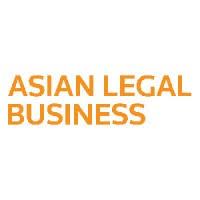
As Helmsman transforms itself into a multi-disciplinary firm, what role is the commercial disputes practice expected to play, and what kind of synergies do you see with other practice areas?
Helmsman was founded in 2019 as a specialist firm focussed on shipping and commodities. But as its client base expanded and its relationships with existing clients deepened, the instructions that the firm received often went beyond ship-ping and commodities work. The time was ripe for the firm to transition to provide multi-disciplinary legal services to meet the growing demands. Helmsman celebrated its strategic transformation at the end of October 2022 and formally announced the formation of new practice groups – commercial disputes, employment and corporate, banking and finance, in addition to the existing shipping and commodities practice groups.
The commercial disputes practice group is intended to cover all contentious matters that do not fall within the specialised categories of shipping, commodities or employment disputes. But legal matters, in practice, are often multi-dimensional and may not fit neatly into the scope of a single practice group. Different aspects of a legal matter may require different expertise. For example, a charter-party dispute resolved by way of arbitration may transform into a dispute centred on principles of arbitration law when a setting aside application is brought before the court of the seat. In addition, many clients see the firm as a trusted partner and seek support on various aspects of their business. For example, fintech start-ups may require assistance in drawing up financing agreements, advice on their employment processes, and legal steps to be taken to recover bad debts. While the firm has five distinct practice groups, these groups do not operate as silos. On the contrary, the work is often fluid and collaborative.
One of your goals is to expand the firm’s practice within Asia-Pacific and beyond. Can you talk a bit about your experience in the cross-border disputes space, and how you plan to grow this offering?
Prior to joining Helmsman, I was involved in the establishment of the Singapore International Commercial Court (“SICC”) and, subsequently, the continual development of the SICC’s practice and procedure. As Deputy Divisional Registrar of the SICC, my work required a keen understanding of the respective features, advantages and disadvantages of different competing and complementary fora for the resolution of cross-border commercial disputes and the concerns that litigants may have. This gives me a more nuanced perspective when advising clients on their cross-border dispute resolution options.
The vast majority of the commercial disputes matters that the firm currently handles is cross-border in nature. The firm has a Hong Kong office, and we have lawyers who are qualified to practise Singapore law, English law and Hong Kong law. With lawyers who are fluent not only in English but also Mandarin, Cantonese, Malay and French, the firm is uniquely placed to assist with a broad range of cross-border legal matters. Since its establishment, the firm has forged valuable connections with clients and counterparts from all over the world. This allows us to tap on the deep experience of our network in appropriate cases and to lend our expertise when legal services are required in our part of the world. By continuing to build and nurture relationships and remaining abreast of legal, commercial and political developments, the firm will continue to provide plain, practical advice through its different practice groups in the region and beyond.
What kind of work is keeping you most busy right now, and what factors are driving that?
Commercial disputes are varied in nature, and there is no single type of matter that dominates my practice. Earlier this year, we successfully defended an application in the Singapore court to set aside an arbitral award. More recently, we obtained a winding-up order against a subsidiary of a listed company in contested winding-up proceedings. At the moment, we are also involved in a number of ongoing court proceedings and arbitrations relating to allegations of fraud, competing title to property and commodities trading, among other things. We are concurrently working on several advisory matters where disputes have arisen or are imminent. The subject matters are wide-ranging and include disputes arising from share sale and purchase agreements, breaches of directors’ duties, cryptocurrency disputes between issuers and exchanges, trade credit insurance claims.
What kind of trends and developments can we expect to see in Singapore’s disputes landscape in the next few years, and how would you like Helmsman to adapt to those?
Recent technological advances have caused seismic shifts in the way that the legal profession functions. Big data techniques are being used in technology-assisted review tools which offer lawyers in the common law world a more efficient way of conducting electronic discovery. It has also become common to utilise legal technology service providers to aid in electronic presentation of evidence and document management to facilitate the efficient conduct of hearings. The pandemic has hastened the shift to a modernised and robust procedural framework, incorporating virtual hearings and the acceptance of electronic signatures and attestations as part and parcel of the ordinary processes for dispute resolution. More recently, the spotlight has been turned to the use of artificial intelligence in legal practice. Helmsman has been actively looking into how best to utilise the different technology-driven solutions so that our lawyers can practise more effectively, efficiently and sustainably.
Technology has also played a big part in the type of work that the firm has been engaged in. For the commercial disputes practice group, technology disputes have been emerging with increasing frequency and variety. These include disputes involving digital assets, the platforms and exchanges for transacting and dealing with such assets, and the new digital economy. Questions relating to the nature of digital assets, tracing these assets, identifying ownership and control, restraining dealings of these assets and valuing these assets have arisen and will continue to arise. Legal principles continue to evolve as the courts and tribunals refine their analyses in the context of different factual matrices arising in every subsequent case. It is important for the firm to keep up to date with the developments in this fast-moving area of law, both in and outside Singapore.

